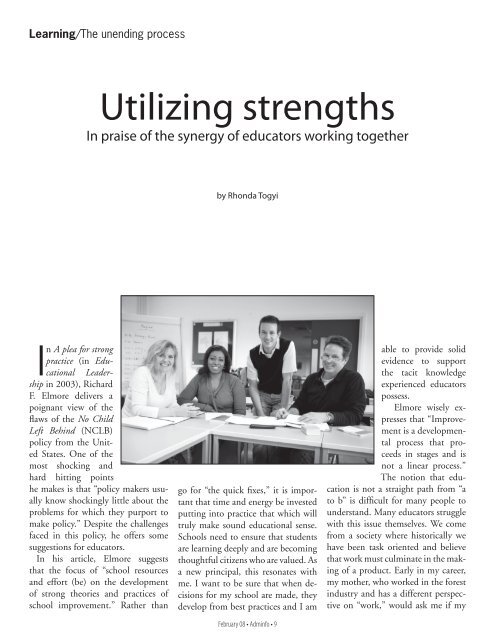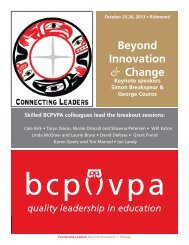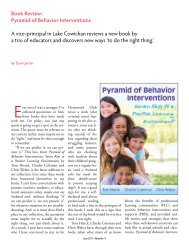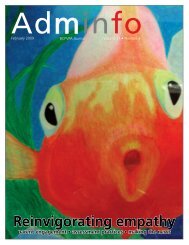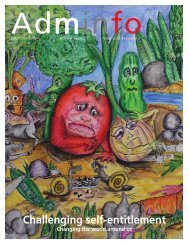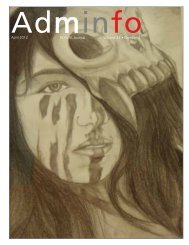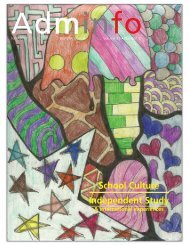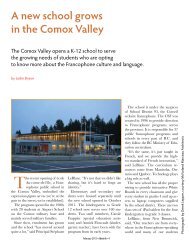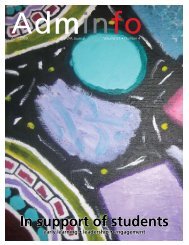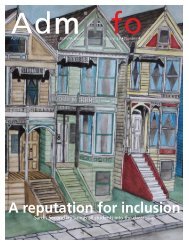Adminfo - and Vice Principals
Adminfo - and Vice Principals
Adminfo - and Vice Principals
You also want an ePaper? Increase the reach of your titles
YUMPU automatically turns print PDFs into web optimized ePapers that Google loves.
Learning/The unending process<br />
Utilizing strengths<br />
In praise of the synergy of educators working together<br />
by Rhonda Togyi<br />
In A plea for strong<br />
practice (in Educational<br />
Leadership<br />
in 2003), Richard<br />
F. Elmore delivers a<br />
poignant view of the<br />
flaws of the No Child<br />
Left Behind (NCLB)<br />
policy from the United<br />
States. One of the<br />
most shocking <strong>and</strong><br />
hard hitting points<br />
he makes is that “policy makers usually<br />
know shockingly little about the<br />
problems for which they purport to<br />
make policy.” Despite the challenges<br />
faced in this policy, he offers some<br />
suggestions for educators.<br />
In his article, Elmore suggests<br />
that the focus of “school resources<br />
<strong>and</strong> effort (be) on the development<br />
of strong theories <strong>and</strong> practices of<br />
school improvement.” Rather than<br />
go for “the quick fixes,” it is important<br />
that time <strong>and</strong> energy be invested<br />
putting into practice that which will<br />
truly make sound educational sense.<br />
Schools need to ensure that students<br />
are learning deeply <strong>and</strong> are becoming<br />
thoughtful citizens who are valued. As<br />
a new principal, this resonates with<br />
me. I want to be sure that when decisions<br />
for my school are made, they<br />
develop from best practices <strong>and</strong> I am<br />
February 08 • <strong>Adminfo</strong> • 9<br />
able to provide solid<br />
evidence to support<br />
the tacit knowledge<br />
experienced educators<br />
possess.<br />
Elmore wisely expresses<br />
that “Improvement<br />
is a developmental<br />
process that proceeds<br />
in stages <strong>and</strong> is<br />
not a linear process.”<br />
The notion that education<br />
is not a straight path from “a<br />
to b” is difficult for many people to<br />
underst<strong>and</strong>. Many educators struggle<br />
with this issue themselves. We come<br />
from a society where historically we<br />
have been task oriented <strong>and</strong> believe<br />
that work must culminate in the making<br />
of a product. Early in my career,<br />
my mother, who worked in the forest<br />
industry <strong>and</strong> has a different perspective<br />
on “work,” would ask me if my


